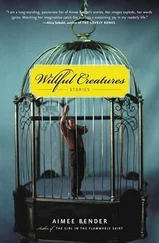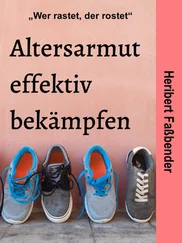It was two in the morning when the cat spoke. It was raining again, great pale thunderclouds moving like ships through the sky. The bedroom flashed with white light. The children, earlier that evening, had tried, for the first time, to run away.
Now the cat was pacing the room. He was full of anguish. We were all trying to sleep. That was, in itself, a joke. No one slept very deeply, ever. Our boy was up the most. “My blanket fell off,” he said. “It’s hot.” He stood by the bed. “I need to find my Yankee card.” He paused. “Now.”
He did not want to leave the day even after it had left him. It was a touching sentiment, though, for us, tiring. It was the gray hour of the morning when nothing seemed alive, the hazy moment before the march through our lives started again, before the sun was up and the dreary race continued, to eat, to be educated, to fill the wallet.
“I love you,” the cat said.
The words sounded almost choked, as though the cat had been holding this in a long time.
I thought my husband had said it, or our son. The cat looked at me. The room whitened with lightning, then went black again.
I did not love the cat. His name was (horrifyingly, and chosen by the children so it could not be changed) Cutie. His gray, matted hair floated through the house. He had the bad judgment to bring leathery, half-eaten lizards to us as gifts. I did not like his guttural yowl, his desire to jump into my lap. He had his sweet moments, but at the end of the day, I had nothing left for him. And it had been my idea to admit him to the family, to pretend I had more tenderness inside of me than I did, to test myself, though of course I said it was for the children.
“Was that the cat?” my husband asked.
The cat sat and stared.
We all had a bruising night. Our son, eight years old, was experimenting with disdain. “I want to run away,” he had said. Before he went to bed, he had packed up what he needed: chewing gum, a small golden trophy from T-ball, some autographed cards of Derek Jeter and Mickey Mantle and J.J. Putz, because he liked to laugh at his name. His sister looked at him, absorbing his tactics. She packed a Hello Kitty bag with a plastic comb, a pink crayon, and a pack of Smarties so old they had petrified.
“We are going to join the poor,” our son said.
They put their backpacks on their shoulders and marched, with great and sorrowful dignity, downstairs. He opened the front door and stepped out onto the porch. They looked out into the great pulsing blackness of the night, the grinding machinery of cicadas. They stood, nobly, on the concrete edge of the porch.
No one stepped out into the darkness.
My husband laughed, unkindly.
“Don’t,” our son said, running back in and slamming the door, enraged and relieved that he would not have to negotiate the wet black maw of the night. They were stuck with us. They slapped uselessly at their father’s big legs. They were so small. But so intent and full of plans.
They had been denied. Our boy had been disinvited from a playdate with Gary Snow. Gary Snow had a trilling laugh, hair as light as sunlight, and an exhaustive collection of baseball cards that he housed, oddly, in a casserole dish. Gary Snow had invited our son to his house and then had been invited to John Meyer’s birthday party and suddenly, cruelly, cancelled.
The girl had also been betrayed. She had found the cat gnawing on one of her My Little Ponies. The cat lolled back, eyes glittering like a drug addict’s, the pony’s tiny pink leg in its mouth. The girl screamed as though the cat were murdering a living thing. “I hate Cutie,” she said. Now she peered into rooms to check to see if he was there first; she woke from bad dreams in which he tried to eat her.
The children had numerous and passionate complaints. The complaints both deflated and excited them. They wanted to find solutions! Their solution was to ask for more TV. They would watch TV until their eyes crusted over. They wanted candy, candy, candy. They lay on the floor in their underwear, their bare, summer-brown skin aglow in the false blue light. They were so beautiful, I wanted to eat them. All of us adults were vampires of their sweetness.
They knew.
They were staring at the television, eyes half-drooping. Something gorgeous was in the bright glare. They were straining to see it. That thing was adulthood.
They wanted everything, and we could only give them so little.
I heard the rustling; soon they would see through our grubby lies. Our pathetic attempts to shove them off to sleep at 9:00 PM so we could have sex. Our insistence that more than half an hour of TV a night during the week would curdle their brains. My attempt to convince the boy not to do Little League simply because I didn’t like the other parents. They would recognize our lameness, our failure — and theirs — to live forever.
“When am I going to die?” the boy had already asked.
We mumbled, looked away, scratched our legs.
“When?” he asked, searching our faces.
Soon, in a big huff, they would pack up and move out. Trailing stuffed animals, baseball cards, My Little Ponies, the objects that they had coveted and which, at seventeen, would make them feel naive and small. They would head off armed with rock posters, black T-shirts that boasted scary sayings, green hair. They would think they were starting anew! They would have better lives than we did! Soon they would be disappointed by sex, or thrilled by it; soon they would feel things — sexually, emotionally — that we never had. Or they would feel less. We believed we had beat out our own parents on this score, but there was no knowing, really. No one said. We lay in our bed, the sheets damp with the chemical smell of spermicide, breathing hard.
“I don’t like your toes,” my husband said. “How they rub against me.”
“Why?” I asked, alarmed.
“I don’t know. I’m just not a fan of them.”
I contemplated this. What was this new change? Should I be understanding? Or mad?
The cat sat there, a gray and hairy beast.
“I love you,” said the cat.
Did the cat love me? Or — more likely — did he just want dinner? I had forgotten to give him dinner. I felt bad about it, but not that bad. He was so fat his stomach dragged against the ground.
If the cat was saying I love you, and he was saying it to me, what was my responsibility to him? Did I have to pet him more? He seemed to need nothing. He awoke several times a day, stretched, checked his food bowl, trotted to the front door, went out, came in, and over and over. He had been allowed into the house because he was the one with no longings.
The rain began to bang against the house. The cat sat there, with immense patience.
“Was that the cat?” my husband asked.
“Yes,” I said.
“He can talk now?” asked my husband wistfully.
“He said, I love you.”
“To you or to me?”
I said, trying not to brag, “I think he said it to me.”
“How do you know it wasn’t to me?”
“I just assumed,” I said.
Cutie was apparently done speaking. He would just gaze upon the wreckage.
“Why couldn’t it be me?” I asked.
“Who did you say it to, Cutie?” my husband asked the cat. “Me or her?”
The cat stepped forward. My husband petted its head. Now he was pandering. Cutie rolled over on his back. He was large; his gray fur smelled of wet grass; there was a leaf stuck to his underside. He was a wild animal. We had innocently invited him into our home. We had even joked to the children that he was the third sibling. They liked that, someone they could push around. “He is your furry brother,” we said. But he was really no better than a possum or a rat. He assumed the fragile mantle of a household pet, nibbled politely at the kibble, rubbed against your legs, posed adorably with a ball of yarn, but up close, he smelled of damp earth, and his hot breath had the metallic undertone of blood.
Читать дальше












